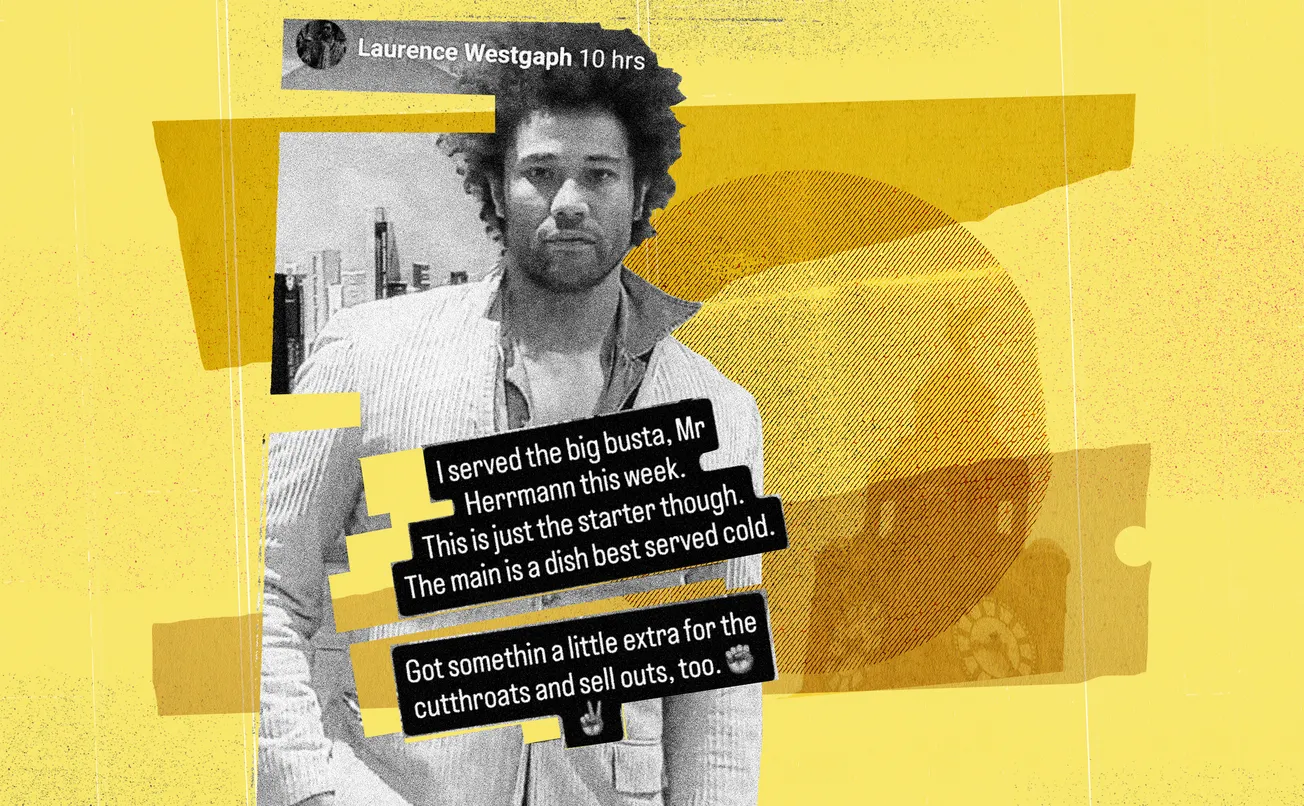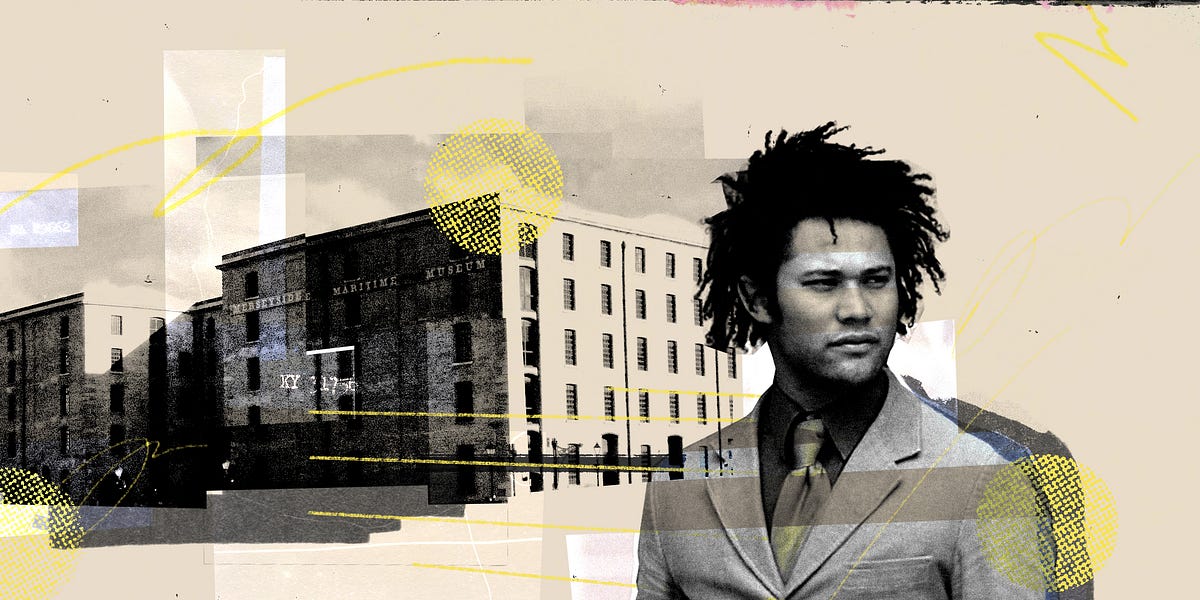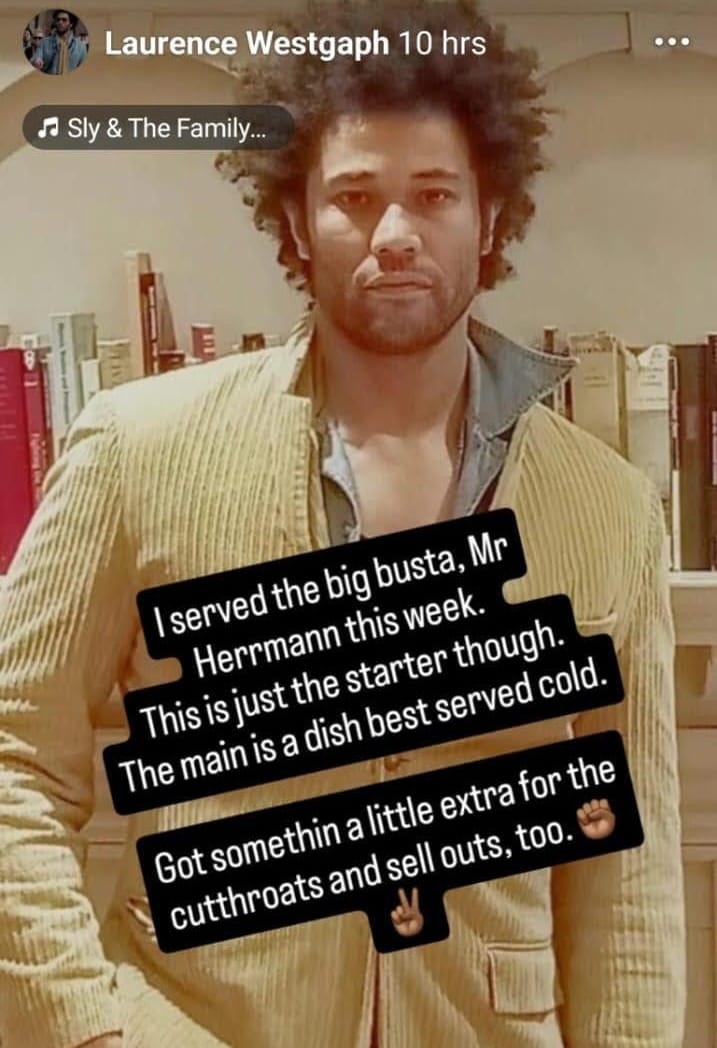‘Cutthroats and sell outs’: An editor’s note about Laurence Westgaph’s threats

The historian has been threatening us with High Court action and trying to intimidate our sources and staff
Dear readers – I’ve decided to write an editor’s note about something that has been occupying my attention recently. I’m doing this publicly because I think it’s important you know the facts, and because I think doing so is in the public interest.
On 1st July, we received a letter from Laurence Westgaph, the high-profile local historian who served as Historian in Residence at National Museums Liverpool between August 2020 and June 2024, and whom we reported on earlier this year. In his letter, Westgaph wrote that he was “preparing to make an urgent application to the High Court for an injunction restraining The Post”. He said his letter was a response to the “highly defamatory, false and misleading allegations” that we had published about him.
In that letter, he threatened that if we did not take down our articles about him, promise to not write any more stories about him and publish a retraction and apology, he would sue us in the High Court. Westgaph imposed a deadline of last Tuesday — 8th July — at 4pm and said if we did not comply with his demands, he would take “immediate court action” and “issue an application for interim injunctive relief without further notice.”
We have not – and will not – retract our stories, which we stand by fully. We will also not offer any assurances that we won’t report on him again. Our articles are still online, and we have removed the paywall from them so they can be accessed by anyone in this city who wants to read them. They detail very serious allegations about how Westgaph abused, stalked and coerced a series of women. Our first story was subsequently reported by The Times, and as a result of our reporting, National Museums Liverpool also launched an internal investigation.

Our stories were the result of interviews with more than a dozen sources, and the allegations of abuse are supported by messages and other documents that provide clear evidence of Westgaph’s abuse.
When we publish an investigation like the one about Westgaph in February, we go to great lengths to corroborate the information we are putting into the public domain. That is why The Post is a highly respected outlet that has a reputation for rigorous investigative journalism. This year, we were a finalist in the country’s most prestigious investigative journalism prize – Private Eye’s Paul Foot Award. We are part of Mill Media, a company that is known for having high journalistic standards.
As we told Westgaph in a letter last Monday, 24 hours before his deadline, news publishers are entitled to report on matters of public interest and as a free press, we are also entitled to resist fetters and threats to that freedom. As our letter explained to him:
“We stand behind everything we have published about you to date, and we will not be intimidated by you into giving any undertakings about not publishing anything more about you. You are a well-known public figure in Liverpool who has been appointed to prestigious roles by major public organisations. We are entitled to report on figures like you, especially given the seriousness of the allegations against you, and our readers expect us to do so.”
So far, Westgaph has not followed through with his threat of seeking an injunction against us at the High Court, but there have been several developments that I think our readers should know about.
‘Cutthroats and sell outs’
Last Thursday, Westgaph showed up in person at an event in Manchester where Mill Media’s founder Joshi Herrmann was appearing on stage. Joshi – who helped found The Post and with whom I work closely on our biggest stories – was being interviewed by a journalist from The Business Desk.
Westgaph must have found details of the event online, but the organisers have confirmed that he didn’t register to attend, or at least not under his real name. He entered the room just after the event began. Right before the end, he stood up in front of the audience and said he was “serving” Joshi with court papers, handing over an envelope and then walking out of the room.
The lawyers among our readers will know that there is no legal purpose to what he did. As Westgaph himself acknowledged, the papers he handed over were already in our possession. It appears Westgaph had made the round-trip to Manchester to send some kind of message to us.
The papers in the envelope were for a County Court claim that Westgaph has made against Mill Media. This is a very different matter from the High Court injunction that he has been threatening us with — but has not yet pursued. It is not a defamation claim and it is not a challenge to the articles we have published. Instead, it relates to attempts Westgaph has been making since March to get us to hand over sensitive documents, messages and emails relating to our reporting.
Given that we are in the process of responding to his County Court claim, it’s best that we don’t go into the details of the case, except to say that The Post will never reveal its sources or hand over information that might identify them. Our legal advice is clear that the “journalistic exemption” in UK data law protects us in that stance.
Westgaph has also been trying to persuade ex-partners of his to hand over sensitive messages in an explicit attempt to uncover who has spoken to The Post. He has done so by sending them Subject Access Requests, or SARs. This legal tool allows members of the public to request data that is held about them by organisations. But as Westgaph surely knows, individuals processing personal data for purely personal reasons are not required to comply with SARs, as is clearly explained on the Information Commissioner Office’s website.
The women he has been contacting did not know this, and several have told us they felt scared and panicked when they received his emails. Some of the women he has been improperly pressuring to hand over data were not among the sources for our original reporting, and have contacted me subsequently to highlight this behaviour.
Around the same time last month, Westgaph started contacting me, threatening to apply to the High Court for an injunction against me personally. Our lawyers have confirmed that this threat had no legal merit. He contacted me on my personal email when he was well aware of my work email.
I also began receiving calls from a withheld number. When I asked the person calling me who they were, they didn’t say anything and soon hung up. We have asked Westgaph whether he was behind these calls, but he has refused to answer on the record. Of course, I do not know whether Westgaph made the calls, but I have never received calls like them before, and I have reported what happened to the police.
I have also told the police about a social media post that Westgaph broadcast to his Facebook friends this weekend. The post features a photo of Westgaph staring at the camera with a serious expression on his face. On top of the photo, he wrote the words:
“I served the big busta, Mr Herrmann this week. This is just the starter though. The main is a dish best served cold. Got somethin’ a little extra for the cutthroats and sell outs, too.”

I don’t know what Westgaph means by “the main” dish, or who he is referring to as “cutthroats and sell outs”. Westgaph chose to post this message on his Facebook profile, knowing that thousands of local people would see it. His profile has 4,800 friends, and in the past he has used it to promote his historical tours.
By Monday morning, I had been contacted by people in Liverpool about the social post, asking what was going on and whether we were being sued for defamation. It was then that I decided, with Joshi and my other colleagues, to publish this editor’s note so that Post readers can be informed about Westgaph’s disturbing pattern of behaviour in recent weeks.
If you’re a lawyer who knows a lot about GDPR law and you can help us out with our upcoming case, please do get in touch. And if you’re someone who has information that could be useful to our reporting, I would also like to hear from you.
Finally, a huge thanks to our paying Post members, whose subscriptions and immense support allow us to do serious investigative journalism and then to back it up when someone is threatening us.
If you’re not a Post member, I would really appreciate it if you joined up today. If ever we are going to need financial backing, it will be in the next few months as we deal with the County Court case and the other legal threats from Westgaph. You can join as a member for just £4 a month, or become a Super Supporter to give us additional support if you can afford it. Just hit the button below to help us.
We have temporarily turned off comments on our site to avoid anything that might prejudice our legal proceedings. Please email us directly with any comments you have using editor@livpost.co.uk.


Comments
Latest
Northern Powerhouse Rail is back on track. We think...
The clockmaker of Wavertree
One of Merseyside’s oldest sports clubs still play every Saturday
Does Liverpool have a ketamine problem?
‘Cutthroats and sell outs’: An editor’s note about Laurence Westgaph’s threats
The historian has been threatening us with High Court action and trying to intimidate our sources and staff